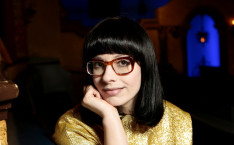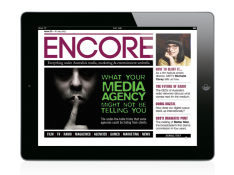Fake it ’til you make it… as a film festival artistic director
 In a piece that first appeared in Encore, Melbourne International Film Festival’s Michelle Carey tells us how.
In a piece that first appeared in Encore, Melbourne International Film Festival’s Michelle Carey tells us how.
What does the artistic director of a film festival do?
An artistic director is responsible for the entire presentation of the festival. This encompasses the festival’s vision for cinema, program structure and film selection, and how that program is communicated to the public. At a more detailed level, you are responsible for systems and policies around film and guest negotiation, liaising with international sales agents and distributors, watching lots of films and attending festivals and generally being tapped into the national and international film world, culturally and production-wise.
What skills do you need to be good at the job?
Dealing with the sheer volume of films, film-makers, distributors, venues and other stakeholders that we do (we have 310 films this year across 446 sessions), organisation is paramount. Energy, charm and patience can go a long way. And I’m not sure this is a skill but above everything you have to love film, be interested in it and be happy to spend much of your ‘spare’ time watching it for at least six months of the year. But of course the unique attribute is creativity and vision, which comes with truly believing in what you do and the art form you work in.
Who are the people you work closest with?
I work very closely with a number of people. I’m a real ‘people person’ and love discussing ideas, whether they be creative or logistical in order to get the best outcome. We have a team of four core staff in programming that I work very closely with on a day to day basis. I also work closely with our CEO and industry director, we form the senior management team. Depending what time of year it is I also work closely with our publicists, marketing, publications, sponsorship, operations and guest liaison teams. Further to this, there are all the local distributors and international sales agents who provide the films. Good relationships with them, and understanding what they are looking for in the relationship, are integral to securing the films.
Is there any lingo we need to know to do the job?
There are a ton of film terms such as POV (point of view), wide angle, long take, and the always amusing ‘trade speak’ of Variety – perfs (performances), boffo business (meaning outstanding – a perennial favourite). But I think we try to speak everyday English where we can. Some programmers I know have some terrific terms – ‘slam dunker’ (noun) to describe a film you just wouldn’t not program, etc.
What does a typical day on the job entail?
It really depends where I am in the festival cycle. Right now, as the festival commences in a week, I am monitoring sales and marketing, looking at sales patterns, and I’m also involved in coordinating guest itineraries, dinners and events. At other times of the year, I spend more time researching films and ideas for the festival, and so I do a lot of outreach, coffee meetings (there is always coffee involved in festival work), reading articles and trades and of course watching films (which I generally don’t do during the day).
What’s the best part of the job?
For me, it’s doing something I love. I am endlessly fascinated by cinema and film-makers and creative people, and love sharing that passion with others. I also really love the challenge of starting with a blank page and building up an event from there. During the festival, it is an amazing thing to meet and look after the visiting film-makers from all over the world and Australia. They can be very nervous for their screenings and you feel quite protective of them and need to nurture them as well as ensure they have a great time.
What’s the biggest challenge?
Film can and does attract a whole spectrum of personality types and you have to know how to deal with them all in the most appropriate way. It’s important to find the balance between being open (to ideas, films, proposals), while knowing when to say no, all the while trying not to offend. In terms of audience reception, it’s challenging to have everyone like every film – everyone is so different, and film is such a subjective thing. I think early on I tried to please everyone and once I accepted that not everyone is going to like everything, I felt more confident and creative in my programming choices. Lastly, a big challenge is finding the time to be across and watch the huge amount of films out there, not to mention finding time to be across other things happening in the world.
How do you become an artistic director?
Ah, how does one count the ways? There really are so many paths, and there is no course to do – you can’t do an MBA in this field. Really, it’s about determination, providing a point of difference, having a diplomatic yet firm personality, excellent contacts, and accepting that this is no nine-to-five job.
 This story first appeared in the weekly edition of Encore available for iPad and Android tablets. Visit encore.com.au for a preview of the app or click below to download.
This story first appeared in the weekly edition of Encore available for iPad and Android tablets. Visit encore.com.au for a preview of the app or click below to download.



